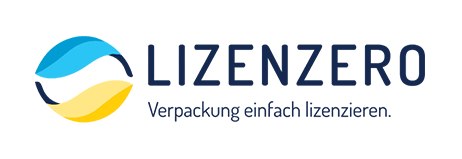EU Sales & Packaging Guideline: What do retailers have to consider when selling B2C within the EU?

German version of this article: EU-Versand & Verpackungsrichtlinie
Especially at Christmas time it becomes clear why packaging waste in Germany is increasing yearly. This year the trend is additionally strengthened by the current COVID restrictions: Consumers buy more and more products up to their front door. But this is not only a problem in Germany: The increasing waste is also becoming visible in other EU countries – and at the expense of the environment.
To promote waste management – and thus protect the environment – the EU Commission adopted joint guidelines several years ago. In Germany this resulted in the German Packaging Act (VerpackG) – but what is the situation in the other countries? What do companies have to consider when selling to other EU countries? Answers can be found in the following article.
Content
- The European basis for packaging waste
- What obligations do companies have to comply with based on the EU Packaging and Waste Directives?
- When is a retailer affected by the EU directives?
- Review: When do companies have to comply with the German Packaging Act?
The European basis for packaging waste
Behind the Packaging Act, which came into force in Germany in 2019, there are two European Directives as a basis: The Packaging Directive and the waste directive. As early as 1994, the member states of the European Union agreed on an EU Packaging Directive on common measures in the field of packaging and packaging waste. In addition to this, an EU Waste Directive applies from 2008. Both Directives were amended in 2018.
The EU has set itself the goal of reducing the environmental impact of packaging waste as well as promoting recycling management in order to ultimately ensure a prudent use of resources. Furthermore, the common guidelines are intended to contribute to fair competition between companies from the various member states.
Since 2008, the directives in the EU area have stipulated that the so-called distributor of packaging is responsible for its recycling (="extended producer responsibility"). Accordingly, companies that put packaging into circulation in an EU country must co-finance packaging recycling in the European recycling systems through a financial contribution, such as the license fee in Germany.

What obligations do companies have to comply with based on the EU Packaging and Waste Directives?
No general statements can be made about what exactly the EU Directives require of companies that circulate packaging in different countries. Each member state must transpose the content of the Directives into its own legislation – just as Germany has done with the Packaging Act.
The EU Directives offer the individual states some room for maneuver, so that the concrete laws of the countries can look very different. Therefore, the obligations for companies that sell products to different EU countries and thus import packaging into the countries vary from country to country. From absolutely no ToDo's to detailed reporting, a company can be faced with a great deal of effort and research when trading throughout the EU. Another problem: The respective laws and guidelines of the countries are usually only available in the national language, so that especially small (online) retailers quickly reach their limits.
Tip: In order to save this costly and time-consuming search for the correct obligations per country and the different licensing providers in the countries, we have developed a consulting service for Europe-wide packaging licensing! With the help of our new, EU-related service you can quickly check whether and which obligations you have to comply with in other countries: LIZENZERO.EU
When is a retailer affected by the EU directives?
Since each member state regulates the implementation of the EU Directives differently, there is no common threshold across the EU above which companies are obliged to implement the individual country regulations. For example, the German Packaging Act states that companies must comply with the obligations of the Packaging Act from the first sales packaging put into circulation in Germany. In other countries, this may depend on the turnover in a country, for example. The following factors can be important for the country-specific laws to be affected:
- Branch office in the respective country
- Packaging volume by weight in the country, product volume in the country, sales per country or in total
- Type of packaging (household vs. commercial or sales vs. transport packaging)
Important: As in Germany, there are control bodies in the other countries that check compliance with the corresponding obligations. In some countries, as in Germany, for example, companies must also register in a special packaging register. Therefore, you should immediately observe the respective applicable obligations in order to avoid unpleasant sanctions!
Tip: With the guides from our sister shop LIZENZERO.EU, you can meet your obligations in all European countries cost-effectively and safely!
Review: When do companies have to comply with the German Packaging Act?
The Packaging Act applies to all companies that fill sales packaging (shipping, service and product packaging) with goods for the first time as so-called first-time distributors and put them into circulation in the area of application of Germany. This also applies to retailers who ship from abroad to German end consumers. Based on the principle of product responsibility, they must participate financially in the recycling of packaging (= system participation or packaging licensing).
As already indicated, the same applies to companies that export their goods to the German territory: Thus, in addition to German and European companies, companies from third countries such as China must also license the packaging they put into circulation in Germany in the direction of the German end consumer.



